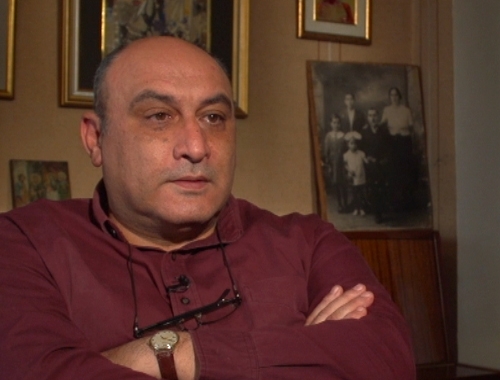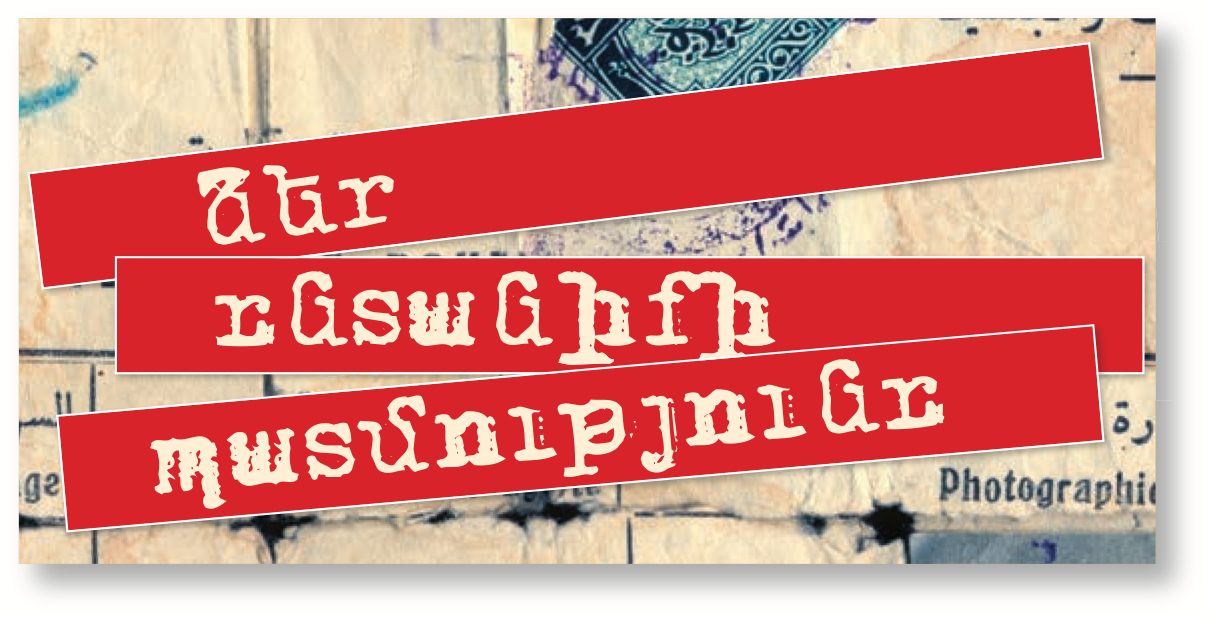 Family immigrated from Greece in 1947. They were deported to Altai in 1949 / Harout was born in Yerevan
Family immigrated from Greece in 1947. They were deported to Altai in 1949 / Harout was born in Yerevan
Harout Avagyan
My grandfather, Haroutiun Krikor Avakyan, and my grandmother, Takouhie Simon Avakyan, escaped the Genocide and met each other in an American orphanage. That’s how then ended up in Greece.
During the war, my grandfather and my father, who was 13-14 years-old, greatly assisted the partisans of Greece. My father would bring food to them. Once, he was caught and severely beaten by the Gestapo. My grandmother had to give the Gestapo chief a valuable family ring in order to release him.
When the repatriation started, they decided to move to Armenia. Yes, my grandfather opposed the move since he was a Tashnak. The Tashnaks never accepted the Soviet regime. But, out of the blue, they told my grandfather that his son was already on the ship. My father was his only son. My grandfather’s family quickly gathered their belongings, followed him, and boarded the ship. That’s how they came to Armenia.
There was a bathhouse in the Yerevan neighborhood of Sari Tagh. They had a house on the street next to the bathhouse. Later, there was an Armenian traitor named …yan. This person wrote a letter to the Internal Affairs People’s Commissariat saying there was a Tashnak family living there. They came during the night and sent the entire family by transport wagons to Siberia, the Altay region, Barnaoul, posyolok Rosipnaya, where my father, grandfather and his brother worked in the forest, cutting down trees. Since my great aunt was young, they gave her an axe to cut the thin branches. My grandmother also cut branches in that brigade.
They had cows and calves. My grandfather, in addition to that work, was also the shoe maker in that place. Thus, they lived pretty good and all in our family wore good shoes. And you know that at that time good shoes were like a Mercedes today, especially in Siberia. That’s how it was.
They returned and went back to Sari Tagh. They rented a place. Before being deported, they had taken the house from them and had given it to someone else. They couldn’t do anything about it.
There were many persecuted people in Sari Tagh. They organized a big party upon returning. There are photos. There were some great picnics. They slaughtered a lamb and made a sacrificial offering. They and three friends took that informer to the forest and gave him a good beating. They gave my grandfather 15 days’ administrative detention for that incident. He was a very strong man. My father had another kind of strength. Wasn’t it Confucius who said that a weak man seeks retribution, a strong man forgives, and a powerful man forgets. Well, I’m not saying that my father was powerful, but that he forgave and forget, definitely.
Perhaps it was God that had planned it all like this for their family.
The Brezhnev era then arrived. They didn’t hound people like before, but we tried not to speak on certain matters. My grandfather sought solace in his vodka. He would drink and fall asleep early so as not to get into fights. But under his pillow was Senkevich’s “Quo Vadis” and Andranik’s book. There was a picture of Andranik under the glass in my father’s office. At the time, it was a store of the Political Soviet. High communist officials would visit, but no one ever said to remove the picture.
Before our family was deported, someone was nailing a picture of Stalin on the wall of that same cloth factory. The picture fell from his hands. When something like that happens you say “damn it”, right? He said ‘damn it’ as well. No one saw the guy after the following day.
Later, my father worked as a clerk in a large food store in Yerevan’s Third District. My grandfather worked there as a porter. Later, my grandfather took a job watering street trees.
We travelled overseas a lot. My father first travelled as a tourist in 1969, to Paris. His aunt invited him. In 1971, he went to Beirut where his uncle was living. He went to the U.S. twice in the 1980s. In 1991, when I went to America, my father said he wouldn’t come if I stayed there. My father said that if he was precious to me, I should return. I did.
That’s to say we had a great choice regarding leaving Armenia – Canada, the U.S., and many other places. We had close relatives all over. Even today, all our friends and relatives say that everyone has left but you have stayed. That’s how things turn out. Someone has to remain in this city, no? At least one real Yerevantsi has no stay, right? We have decided to stay.
By the way, I’m proud of being a Yerevantsi. I love my city. True, I’m the son of an akhpar. That’s how they labelled us. It’s probably written on our foreheads to be regarded as akhpar children. I, my sister and brother, who today fight for Yerevan.



















